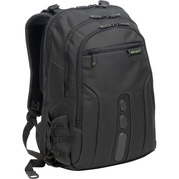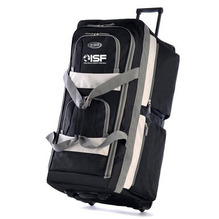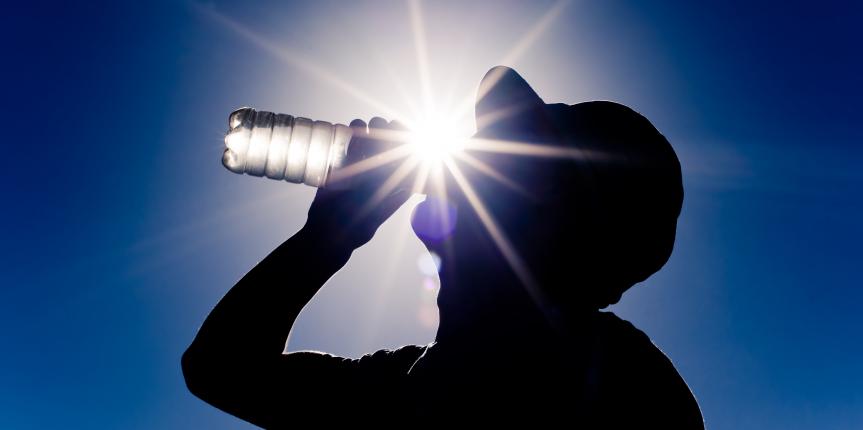travel tips
luggage considerations
|
Carry-On Luggage
Think of your carry-on luggage as your traveling survival kit. Your carry-on luggage is the only piece of luggage that is guaranteed to arrive with you in country. Make sure you pack a change of clothes, toiletries, important medicines, valuable items, documentation, passport, plane tickets and other necessities in your carry-on luggage. You will be required to follow the baggage size guidelines of each individual airline. Also, don’t forget about the airline restrictions on liquids and lotions in your carry-on luggage! |
|
Checked Luggage
In most cases, you will be allowed one checked piece of luggage with a maximum weight of 50 pounds. Some airlines have lower weight restrictions. You will be notified ahead of time if your team’s airline requires different guidelines. You are only allowed to check ONE piece of luggage. Note: Make sure you are able to carry everything you bring. There may be times when you have to walk a mile or more carrying all your belongings. |
passport/visa:
Your passport must be valid six months past your intended departure date from the country you are visiting. You may be refused entry into the country if your passport expiration date does not meet this requirement.
Most visas are purchased when entering the country. If a visa is required prior to your arrival in-country, you will be informed well in advance of your trip and will be provided instructions on how to obtain one before departure. All visa expenses will be budgeted within the project cost.
It is important to have at least 3 photocopies of your passport ID page and visa (if required for your mission project) on hand in case the originals are lost. Keep an extra copy in your carry-on luggage, the second on your person, and the third in your checked luggage. Also, it is recommended that you leave a copy of your passport behind with your emergency contact person in the U.S.
Travel Taxes and Fees:
ISF researches and attempts to cover all applicable border, airport entry or exit taxes that may be a part of the mission team’s travel. However, there is the chance that unforeseen circumstances may require that team members have cash. Each team member should travel with at least $50.00 on their person for expediency.
Most visas are purchased when entering the country. If a visa is required prior to your arrival in-country, you will be informed well in advance of your trip and will be provided instructions on how to obtain one before departure. All visa expenses will be budgeted within the project cost.
It is important to have at least 3 photocopies of your passport ID page and visa (if required for your mission project) on hand in case the originals are lost. Keep an extra copy in your carry-on luggage, the second on your person, and the third in your checked luggage. Also, it is recommended that you leave a copy of your passport behind with your emergency contact person in the U.S.
Travel Taxes and Fees:
ISF researches and attempts to cover all applicable border, airport entry or exit taxes that may be a part of the mission team’s travel. However, there is the chance that unforeseen circumstances may require that team members have cash. Each team member should travel with at least $50.00 on their person for expediency.
TRAVEL SUGGESTIONS
Depending on the mission project, here are some items that you will usually need on hand during your project. Ask the Project Coordinator if there are any questions about safety and security of these items.
1. Passport
2. Visa (if required for your destination country)
3. Photocopies of passport and visa
4. Cash
5. Copy of your name, phone number, address, and emergency contact information in the U.S. and in the country you are visiting
6. Travel Insurance Card (you will receive this from ISF prior to your project)
7. Health Concerns: current medications, any allergies, etc...
1. Passport
2. Visa (if required for your destination country)
3. Photocopies of passport and visa
4. Cash
5. Copy of your name, phone number, address, and emergency contact information in the U.S. and in the country you are visiting
6. Travel Insurance Card (you will receive this from ISF prior to your project)
7. Health Concerns: current medications, any allergies, etc...
HEALTH CONCERNS
Take your health very seriously. If you are not healthy, then you will not be able to participate in mission activities, nor will you be effective in accomplishing the mission objectives. ISF volunteers participate in sporting events and competitions. When unhealthy team members suffer, their team suffers. Health problems can interfere with the project schedule, and illness puts extra pressure on the rest of the team. Mission teams will face health problems. However, you can help prevent a lot of health problems by using common sense.
Vaccinations
Vaccinations are sometimes required for international travel and are the primary defense against disease and illness. Check with your local travel clinic, the CDC website (www.cdc.gov) or Project Coordinator to see if vaccinations are required for your mission project. Make sure you arrange to get your shots and prescriptions well before your departure date. It is recommended that each volunteer keep his/her vaccination booklet with their passport.
Diarrhea
There is nothing that can assure the prevention of diarrhea. However, each team member should have a supply of anti-diarrhea medicine to suppress symptoms if they occur. It is important for team members who contract diarrhea to be re-hydrated immediately when symptoms appear and throughout their recovery. Gatorade is a good source of replenishing electrolytes! Diarrhea sufferers should have liquids every hour.
Vaccinations are sometimes required for international travel and are the primary defense against disease and illness. Check with your local travel clinic, the CDC website (www.cdc.gov) or Project Coordinator to see if vaccinations are required for your mission project. Make sure you arrange to get your shots and prescriptions well before your departure date. It is recommended that each volunteer keep his/her vaccination booklet with their passport.
Diarrhea
There is nothing that can assure the prevention of diarrhea. However, each team member should have a supply of anti-diarrhea medicine to suppress symptoms if they occur. It is important for team members who contract diarrhea to be re-hydrated immediately when symptoms appear and throughout their recovery. Gatorade is a good source of replenishing electrolytes! Diarrhea sufferers should have liquids every hour.
|
Heat
You and the Project Coordinator should work to keep team members protected from heat exhaustion and heat stroke. If team members are participating in outdoor activities, make sure they are consuming plenty of fluids, protected against sunburns, and taking sufficient rest breaks. No one should wait for heat exhaustion symptoms (extreme thirst, dizziness, nausea) before taking precautions. |
Water:
Mission teams need to consume a lot of fresh water daily and avoid any water that may be contaminated.
Follow these guidelines for all water concerns on the mission field:
1. Select team members to be responsible for the team’s water supply.
2. Communicate regularly with the host missionary about sources for replenishing the team’s water supply.
3. Drink bottled or boiled water only.
4. Brush teeth with bottled water.
5. Do not swallow any water during a shower.
6. Check bottled water for seals and avoid water that appears to have been rebottled.
7. Drink one gallon of water a day.
8. Bring powdered sports drink or drink mixes that require only water.
9. When an option, consult the in-country contact about clean sources of water.
Mission teams need to consume a lot of fresh water daily and avoid any water that may be contaminated.
Follow these guidelines for all water concerns on the mission field:
1. Select team members to be responsible for the team’s water supply.
2. Communicate regularly with the host missionary about sources for replenishing the team’s water supply.
3. Drink bottled or boiled water only.
4. Brush teeth with bottled water.
5. Do not swallow any water during a shower.
6. Check bottled water for seals and avoid water that appears to have been rebottled.
7. Drink one gallon of water a day.
8. Bring powdered sports drink or drink mixes that require only water.
9. When an option, consult the in-country contact about clean sources of water.

Jet Lag Prevention:
During Training Camp
1. Sleep when the schedule says sleep! There will be plenty of time to get to know one another later in camp and on your project. GO TO BED!!
2. WORK HARD WHEN THE SCHEDULE SAYS WORK. You will rest better during travel if you are physically tired.
3. TRAIN YOUR BODY. Begin to reduce your carbonation & caffeine intake (soft drinks and chocolate).
24 Hours Before Departure
1. EAT LIGHT!! Do not stock up for the plane ride.
2. NO CAFFEINE!! Trust us!!! You will rest much better with no caffeine in your system.
3. DRINK LIKE A CAMEL!! Water! Water! Water! Drink at least ten (10) glasses of water within the 24 hours before you depart. Long flights and pressurized airplanes will dehydrate you quickly. On the flight please drink only water or juice.
4. NO CARBONATED DRINKS! Carbonation and long flights do not mix well.
Note: As soon as you get on the plane, set your watch to the time of your destination. Try to think as if it were actually that time. Sleep according to the time at your destination. Your PC will help you. A low strength sleep aid may be helpful.
Upon Arrival
1. Shower (if possible), relax, and do some mild exercise.
2. Regardless of when you arrive, attempt to stay awake until a normal bedtime.
3. Take a low strength sleep aid or a melatonin supplement to help you sleep.
During Training Camp
1. Sleep when the schedule says sleep! There will be plenty of time to get to know one another later in camp and on your project. GO TO BED!!
2. WORK HARD WHEN THE SCHEDULE SAYS WORK. You will rest better during travel if you are physically tired.
3. TRAIN YOUR BODY. Begin to reduce your carbonation & caffeine intake (soft drinks and chocolate).
24 Hours Before Departure
1. EAT LIGHT!! Do not stock up for the plane ride.
2. NO CAFFEINE!! Trust us!!! You will rest much better with no caffeine in your system.
3. DRINK LIKE A CAMEL!! Water! Water! Water! Drink at least ten (10) glasses of water within the 24 hours before you depart. Long flights and pressurized airplanes will dehydrate you quickly. On the flight please drink only water or juice.
4. NO CARBONATED DRINKS! Carbonation and long flights do not mix well.
Note: As soon as you get on the plane, set your watch to the time of your destination. Try to think as if it were actually that time. Sleep according to the time at your destination. Your PC will help you. A low strength sleep aid may be helpful.
Upon Arrival
1. Shower (if possible), relax, and do some mild exercise.
2. Regardless of when you arrive, attempt to stay awake until a normal bedtime.
3. Take a low strength sleep aid or a melatonin supplement to help you sleep.



